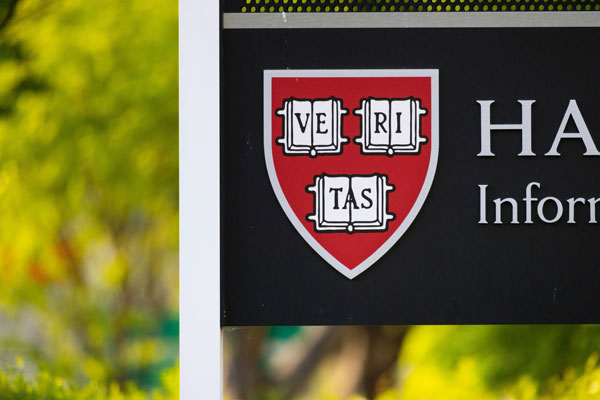Harvard wins court ruling against federal research funding freeze

[An image of Harvard University’s logo. Photo Credit: Unsplash]
Harvard University won a major legal battle on September 3, when U.S. District Judge Allison Burroughs ruled that the Trump administration’s freeze on nearly $2.2 billion in federal research funding was unlawful.
The freeze, announced in July, halted payments from federal agencies to Harvard, citing concerns over antisemitism on campus and demanding immediate policy changes.
The move came after months of criticism from Republican lawmakers, who claimed that Harvard had failed to adequately respond to antisemitic incidents following the outbreak of the Israel-Hamas war.
The U.S. Department of Education had opened several investigations under Title VI of the Civil Rights Act of 1964 into alleged harassment of Jewish students, which federal officials pointed to when justifying the freeze.
Critics, however, warned that tying research funds to campus speech policies risked politicizing scientific work.
Harvard responded by filing a lawsuit, describing the administration’s action as “an unconstitutional abuse of power.”
The university argued that the freeze would cause irreparable harm to ongoing research, faculty employment, and student opportunities.
In her decision, Judge Burroughs said the administration had violated constitutional protections by attempting to coerce Harvard through funding.
She further noted that federal agencies had failed to follow required procedures before implementing the freeze.
The injunction immediately restored access to the $2.2 billion, which supports thousands of projects across Harvard’s schools, ranging from biomedical research to climate studies.
Alan Garber, Harvard’s president, hailed the decision a victory not only for Harvard but for higher education nationwide.
“The ruling affirms Harvard’s First Amendment and procedural rights, and validates our arguments in defense of the University’s academic freedom, critical scientific research, and the core principles of American higher education,” he said.
But Harvard’s win is far from final.
The Trump administration quickly announced plans to appeal, leaving the long-term future of the funding uncertain.
If the appeal succeeds, the freeze could be reinstated during litigation, again jeopardizing thousands of federally supported projects.
Legal analysts say the case could set a national precedent on how far the federal government can go in exerting leverage over universities through research grants.
Some warn that a government victory might give future presidents the power to use federal funding as leverage to influence universities’ internal policies on speech, campus conduct, or hiring.
Others argue that if Harvard University ultimately wins, the decision could fortify protections that shield academic institutions from political retaliation and reinforce constitutional limits on executive authority over federal grantmaking.
In either case, the stakes of the appeal extend well beyond Harvard, with other universities and research institutions closely watching the outcome.
For Harvard’s faculty and students, the immediate concern has been stability.
Harvard is one of the largest recipients of federal research money in the country, and many of its labs rely almost entirely on those funds to operate.
For faculty, postdoctoral researchers, and graduate students, Judge Burrough’s ruling offered temporary relief, allowing their work to continue without interruption.
Still, the uncertainty surrounding the appeal has left many uneasy.
This clash is not Harvard’s only recent confrontation with the federal government.
Just months ago, the university fought the Department of Homeland Security over international student visas, a case that underscored the fragile relationship between academic institutions and federal agencies.
Together, the two disputes highlight the precarious balance between higher education and politics under the current administration.
For Harvard, the lawsuit has always been about more than money.
It represents an effort to safeguard the independence of academic research from political interference.
For the wider academic community, the case has become a symbolic test of whether universities can continue to function as spaces of free inquiry in the face of government pressure.
For now, the funding is restored and research continues.
But with the administration’s appeal pending, the future of Harvard’s projects and the work of thousands of researchers remains unresolved.

- Yewon Kim / Grade 11 Session 10
- Longmeadow High School

![THE HERALD STUDENT REPORTERS [US]](/assets/images/logo_student_us.png)
![THE HERALD STUDENT REPORTERS [Canada]](/assets/images/logo_student_ca.png)
